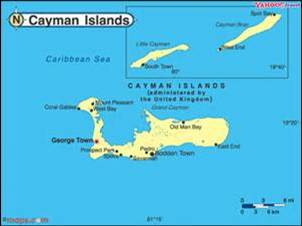CIMA acquires power to levy more sweeping fines
Regulatory team, Harneys, Cayman Islands, 18 July 2020

The Cayman Islands Monetary Authority can now impose significant financial penalties for any breach of a regulatory law, regulation or CIMA rule, with the passing of the Monetary Authority (Administrative Fines) (Amendment) Regulations 2020.
CIMA previously had the power to impose fines for breaches of the Anti-Money Laundering Regulations, but this new law vastly extends its reach.
Which regulatory laws are covered?
CIMA now derives its power to impose financial penalties from 13 laws (plus the regulations enacted thereunder) and CIMA's rules (regulatory laws). The key regulatory laws are:
- the Anti-Money Laundering Regulations (Revised);
- the Banks and Trust Companies Law (Revised);
- the Companies Management Law (Revised);
- the Directors' Registration and Licensing Law 2014;
- the Insurance Law 2010;
- the Monetary Authority Law (Revised);
- the Mutual Funds Law (Revised);
- the Private Funds Law 2020; and
- the Securities and Investment Business Law (Revised).
What are the fines?
The fines are scaled according to a three-tier system, divided into breaches of a minor, serious and very serious nature.
For individuals, the penalty ranges from US$6,100 for a minor breach to US$122,000 for a very serious breach. For entities, the penalty for a minor breach is the same, but a very serious breach attracts a penalty of up to US$1,220,000.
If a minor breach continues, the penalty may be imposed more than once, up to a maximum of US$24,400.
Whom do these new financial penalties affect?
CIMA can fine any person or entity that breaches any provision of a regulatory law.
In particular, all entities that hold licences issued by CIMA fall within its new powers.
Any entity registered with CIMA as a Registered Person, a mutual fund or a private fund, or one that conducts "relevant financial business", plus those persons or entities registered with CIMA as directors, are also now subject to this new fining system.
Other criteria
In most cases, CIMA must firstly issue a breach notice to the person or entity. The notice must be substantially in the prescribed form.
The regulations set out a number of criteria that CIMA must consider in relation to both the issuing of a breach notice and the amount of any fine, such as the nature and seriousness of the breach.
There is a "right of reply" period of 30 days for most breach notices, and a rectification period of 30 days for minor breaches.
When levying a fine, CIMA must consider the merits of any reply to a breach notice, or rectification of a minor breach, and if not satisfied it must impose a fine. The fine must be set out in a fine notice, together with certain other prescribed information, and issued to the person or entity.
A fine notice may be reviewed or appealed against upon an application made within 30 days of receipt of the fine notice. A review undertaken by CIMA’s Management Committee. Appeals go to the Grand Court, depending on the level of the fine.
New TIA offence
It is now an offence to knowingly or wilfully supply false or misleading information to the Cayman Islands Tax Information Authority (TIA). A fine of US$12,200 and/or imprisonment for 5 years may be imposed on any person who commits such an offence.
A number of key reports are made through the TIA, such as CRS and FATCA reports and other international exchange-of-information reports. People should be mindful of this new offence when completing them.












